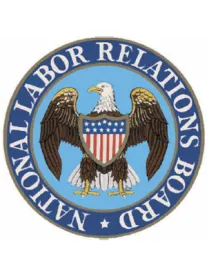On September 18, the Board’s GC issued GC Memo 20-14, entitled Summaries of Advice Merit Determinations Related to Coronavirus Disease 2019 Issues for the purpose of giving the public a better understanding of the GC’s approach to COVID-19 related issues. What emerges is a clear message—while the pandemic can impact certain obligations under the National Labor Relations Act, the agency will not permit employers to use the pandemic as a sword to engage in unlawful conduct. Under Agency guidelines, advice memos in such “go” cases cannot be released until the case is closed. Accordingly, rather than release actual advice memos, the GC’s September 18 memo contained a series of anonymous case summaries in which an employer’s actions relating to the virus were deemed unlawful. Over the past several months, we have reported on advice memos from the NLRB General Counsel’s Division of Advice finding various employer actions in dealing with COVID-19 issues to be permissible under the NLRA (see our recent postings here and here). The GC’s latest memo includes a list of these earlier advice memos in which an employer’s COVID-19 conduct was found lawful. What follows is a description of some of the issues and settings rendering these matters meritorious and therefore “go” cases.
Protected Concerted Activity (PCA) – Employee requests to management about working conditions, and in this case a letter requesting input on how to provide services to clients during the pandemic, qualify as PCA. Accordingly, an employer’s interrogation of an employee about her involvement in the letter, its warning to the employee not to discuss her interactions with management with co-workers and to refrain from taking her work-related problems to co-workers, and its threat to fire the employee if he/she did not follow the employer’s instructions were found to be unlawful interrogation, threats of termination, surveillance and constructive discharge.
Discrimination Based on PCA – After a group of non-union employees briefly withheld services from a food delivery business in protest over its failure to provide them with personal protective equipment and to enforce social distancing guidelines, the employer returned all of the “protesters” to work except for two individuals, one of whom was the person who led the job action. Because the job action was PCA, the GC authorized the issuance of complaint on the theory that the un-reinstated employee was discriminatorily singled out because he led the PCA.
Weingarten Rule – Union represented employees who are called in for an interview and who believe that they may be subject to discipline may request the presence of a union steward or representative. Named after the court case giving rise to it, this right to representation during a disciplinary interview is commonly referred to as the employee’s Weingarten right. In one of the cases reported by the GC, an employee was suspended and issued a warning after asserting his Weingarten right while being questioned about whether he would agree to wear a face mask only when required by his work duties. The Region was directed to seek a make-whole remedy because of the nexus between the Weingarten violation and the resulting discipline.
Discriminatory Layoff/Recall – In one case, an employer violated the Act when during a pandemic-related facility closure, it laid off recently organized workers while not laying off and, indeed, retaining other (non-bargaining unit) workers also affected by the shutdown. According to the GC, this selective layoff combined with the employer’s conduct during bargaining manifested an effort to erode the bargaining unit in violation of the Act.
Similarly, in a second case, a hotel operator who laid off workers due to the pandemic violated the Act when it discriminatorily withheld recall rights from one group of laid off workers known to be union supporters, while recalling another group of employees known not to support the union. This disparate conduct combined with antiunion statements during a recent union organizing campaign led to the conclusion that this disparate treatment of the two groups was based on their support of the union.
A Unionized Employer Remains Under a Continuing Duty to Bargain Due to/During the Pandemic – Generally, an employer is permitted to, at least initially, act unilaterally during emergencies so long as its actions are reasonably related to the emergency situation. However, insofar as the employer’s actions are not mandated by state or local law, not sanctioned by their CBA or supported by the parties’ past practice, the employer must still negotiate over the decision to make the change and its effect on the bargaining unit within a reasonable time after making the change. Thus, when a school changed its operations over to remote learning after a Governor’s school closure order, the GC directed a Region to investigate whether the change to remote learning reasonably related to the COVID-19 emergency and whether the employer’s changes were sufficiently material, substantial and significant to warrant subsequent bargaining.
In a second bargaining case, the GC concluded that the pandemic did not privilege a successor employer’s refusal to bargain over an extended period of time by failing to respond to a union’s proposals via email between mid-March and mid-May and that it unlawfully refused to consider or to discuss a memorandum of understanding over hazard pay for employees during the pandemic while there was no collective bargaining agreement in effect.
Finally, in a third bargaining case, the GC concluded that an employer operating a cultural institution violated its duty to bargain when it unilaterally eliminated health insurance and vacation leave balances for furloughed employees during a government-mandated shutdown without engaging in pre-implementation bargaining. Despite the economic pressures created by these government directives, those pressures did not rise to the level of an exigency that would excuse the employer from engaging in pre-implementation bargaining.
Important Takeaway:
Employers acting on the challenges of COVID-19 must be mindful of their employees’ rights and their obligations under the NLRA. Though employers must abide by state and local govern-mental mandates and even though they may face exigencies that may abate their NLRA duties, those duties remain in effect. Whether, when and how an employer must comply with those duties may be quite nuanced and fact specific.
As you are aware, things are changing quickly and there is a lack of clear-cut authority or bright line rules on implementation. This article is not intended to be an unequivocal, one-size fits all guidance, but instead represents our interpretation of where things currently and generally stand. This article does not address the potential impacts of the numerous other local, state and federal orders that have been issued in response to the COVID-19 pandemic, including, without limitation, potential liability should an employee become ill, requirements regarding family leave, sick pay and other issues.





 />i
/>i
